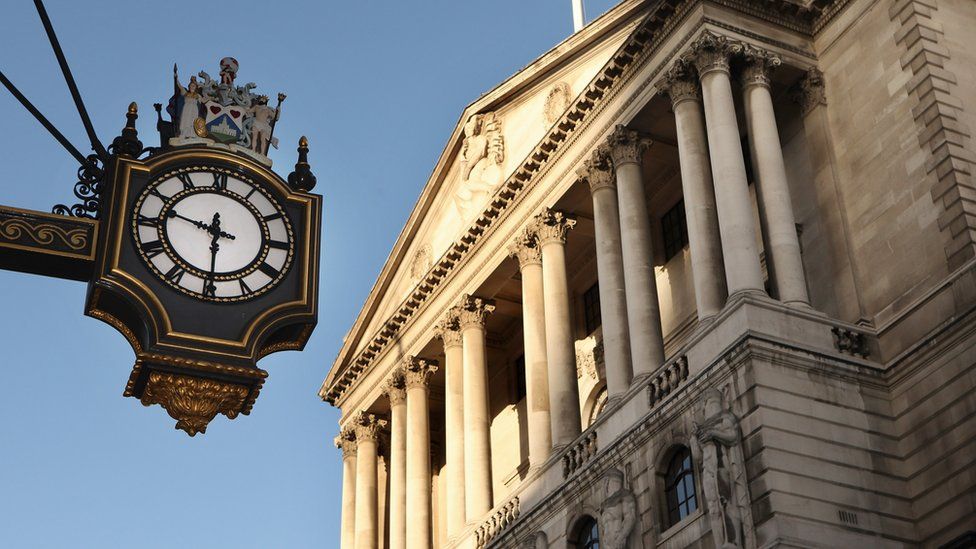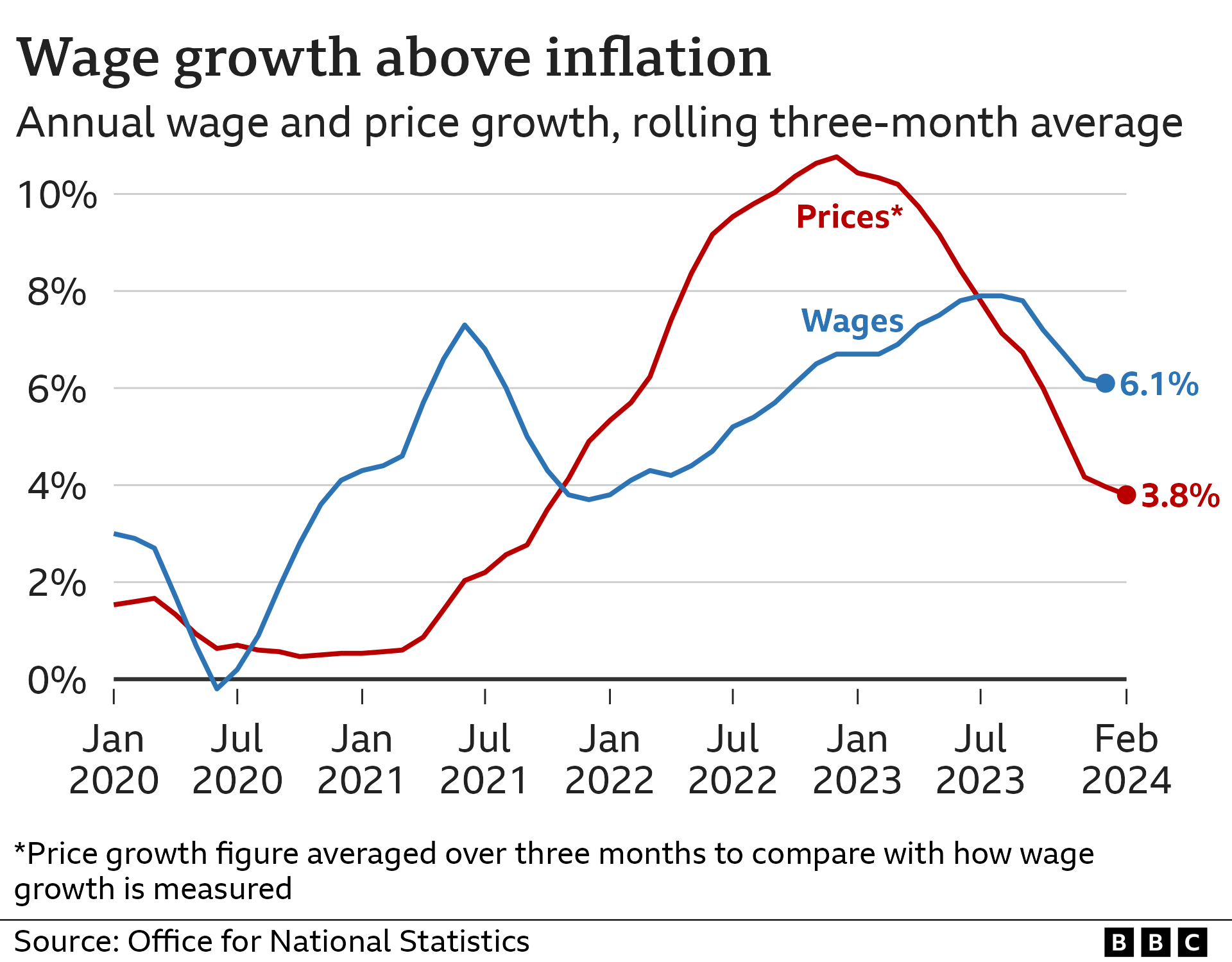 Image source, Getty Images
Image source, Getty ImagesThe Bank of England is expected to hold interest rates at 5.25% for the fifth time in a row on Thursday.
It is also expected to be cautious about signalling when future rate cuts will be, despite lower-than-expected February inflation figures.
The Bank has been trying to take the heat out of inflation without damaging the UK economy.
Central banks also tend to follow the lead of the US Federal Reserve, which held rates on Wednesday.
Inflation, the rate at which prices rise over time, has been gradually falling since it hit 11.1% in October 2022, its highest rate for 40 years.
However, prices are not yet falling they are just rising less quickly than they were previously.
Bank governor Andrew Bailey has said the Bank would wait for firm evidence that inflation was under control before it cuts rates.
It has an inflation target of 2% and it either raises, hold or lowers rates to try to achieve that.
It has been holding rates steady after a run of 14 consecutive increases that were intended to curb the soaring pace of general price rises.
By keeping interest rates high, the Bank is trying to clamp down on the pace of price rises without damaging the economy – which has been sluggish in recent years.
This policy of higher interest rates has raised borrowing costs for households and the government.
On the other hand, savers may be able to get higher interest rates on their accounts.
The Bank looks at a number of factors in the economy when deciding how rates should be set.

Services inflation and wage growth are two of the key factors the Bank looks at when deciding whether to cut rates.
Wage growth slid to 6.1% in February, down from nearer 8% in the middle of last year.
But inflation in services – which covers the likes of hotel stays and insurance premiums – remained high at 6.1%.
The Bank also takes into account factors such as job losses and economic output.
Like in the UK, interest rates around the world had been on the increase, but in recent months, other central banks – including the US Federal Reserve and the European Central Bank – have also paused their rate rises.
The UK has had one of the highest interest rates in the G7 – the group representing the world's seven largest so-called "advanced" economies.





